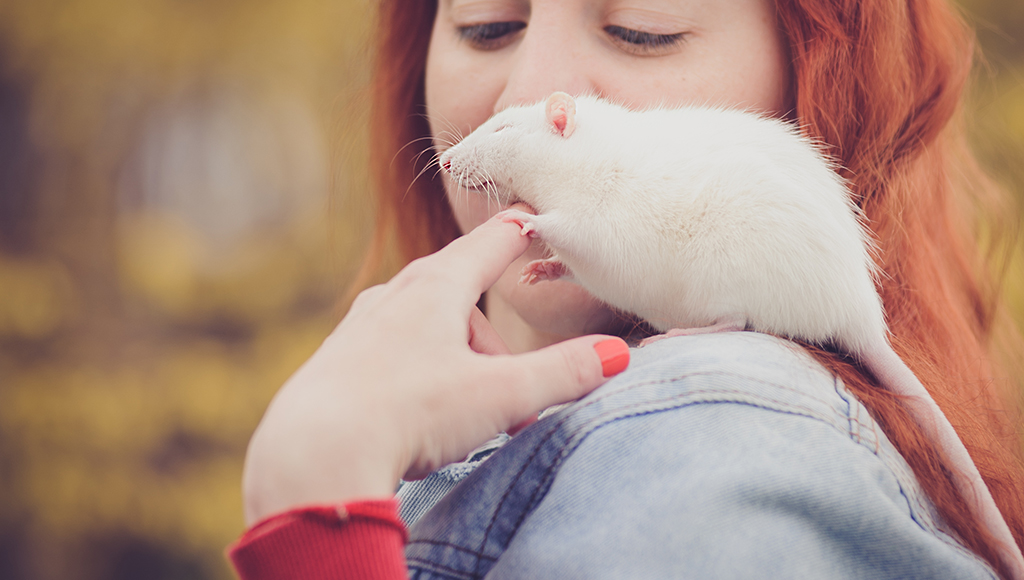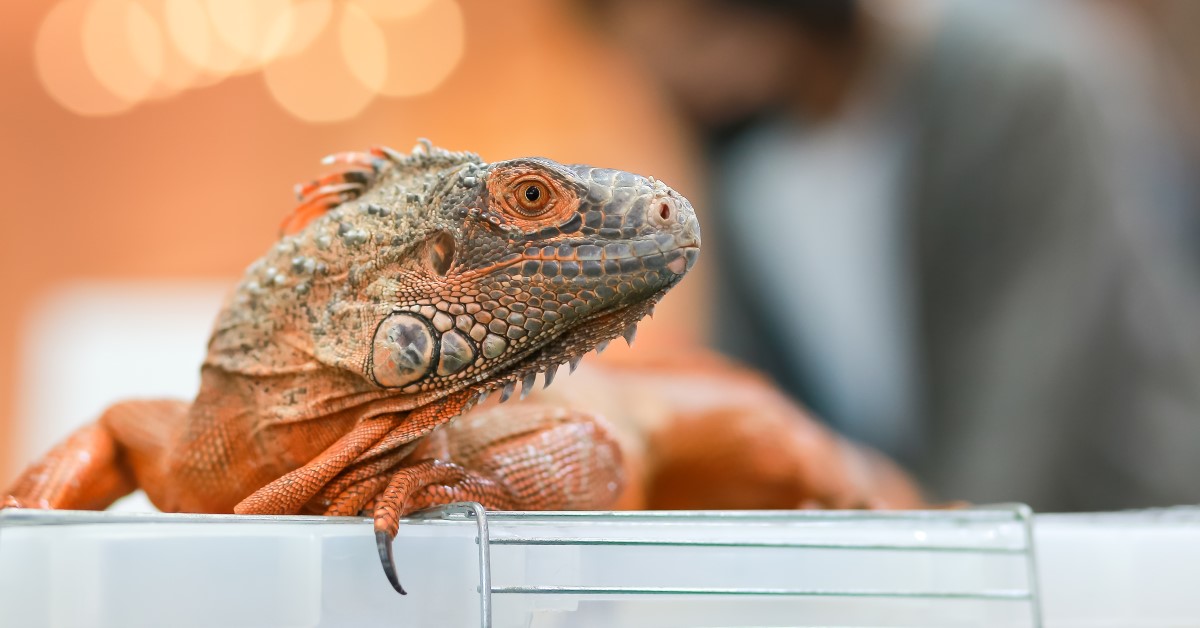Rats Make Great Pets!
Rats makes great pets for kids, but adults are enjoying them too!

These intelligent, social rodents are not just children's pets--adults love them, too.
Are you looking for a pet small enough to fit in a cage, yet social enough to play games with you and your family? Look no further. Though once considered strictly a child's pet, the active, intelligent rat is rapidly growing in popularity with adults.
Rats have had much to overcome to gain acceptance with the adult crowd. Say the word "rat," and many people immediately picture the wild version of the animal known for its pest like qualities. Toward the turn of the 19th century, however, people began breeding rats for a number of purposes, and new strains of domesticated rats developed.
Today's domesticated rats are quite different from their wild ancestors. Like other domesticated animals, pet rats have been selectively bred for calm dispositions and rarely bite. They are clean and do not carry diseases that can be transmitted to people. Some people tend to feel squeamish about their long, naked-looking tails, but rats' tails are actually covered with short hairs and have a smooth, silky texture.
Caring For Your Rat:
Housing
Your rat's cage should be as large as you can afford and at least 12 by 24 inches. Both aquariums and wire cages can be used. However, rat cages should not be made of 1-by-1/2-inch wire mesh because rats can catch their back feet in the squares. Rats prefer cages with solid instead of wire floors.
When selecting a cage, choose the type you will mind cleaning the least, because a clean cage is important. Ammonia, a by-product of urine, will damage the rat's respiratory system, so cages should never be allowed to get smelly.
Cage litter is most effective for rats if you place only a thin layer on the bottom of the cage. Several manufacturers have introduced processed litter products that are ideal for rat cages. Some of these litters are made from crinkled kraft paper or processed wood pulp and fibers, while others come in pellets made from wheat grass or recycled newspaper. These products contain no toxins and are safe if eaten. Several brands also contain natural ingredients that help control odors.
Food
Rats are omnivorous, so their diet should contain some animal protein. A good basic food choice is a food block specially prepared for rats, although even this basic diet should be supplemented daily with fresh (or frozen) fruits and vegetables. Appropriate vegetables include broccoli, kale, bok choy and sweet potato. Dry beans, such as pinto and kidney, are good protein sources. Sweet potatoes and beans must be cooked before being offered to your pet, but the other vegetables can be offered either cooked or raw, as each rat has its own preferences.
Fresh fruits are a healthy way to satisfy a sweet tooth, and rats enjoy grapes, cherries, bananas, apples, melons and oranges. Although most "human" foods can be given as occasional treats, never give your rat licorice or chocolate.
Don't forget to offer your rat fresh water. Water bottles that hang from the inside or outside of the cage are the most effective water receptacles for rats. Be sure to change the water daily and clean the bottle regularly.
Supplies
Cage accessories should include a water bottle, food dish and nest box. Household items such as milk jugs, cans, jars and ink-free cardboard boxes (colored ink may contain lead) can be used for nest boxes. An optional but recommended accessory is an exercise wheel. Some rats love running on a wheel, while others don't seem to care for it, but most rats that are exposed to a wheel when young will use it to some extent. Rat wheels must be at least 10 inches in diameter--hamster wheels are much too small. Chinchilla or guinea pig wheels are suitable. Other recommended cage accessories include tubes, hammocks and items for climbing such as ladders, branches and ropes.
Watch an upcoming issue for information on handling and special care!
Ready to start saving money on pet wellness care?
Then take a look at Mint Wellness, the pet wellness plan that provides fast reimbursement on routine pet care. Save on vaccinations, wellness exams, preventatives, dental, and more!
Learn More


